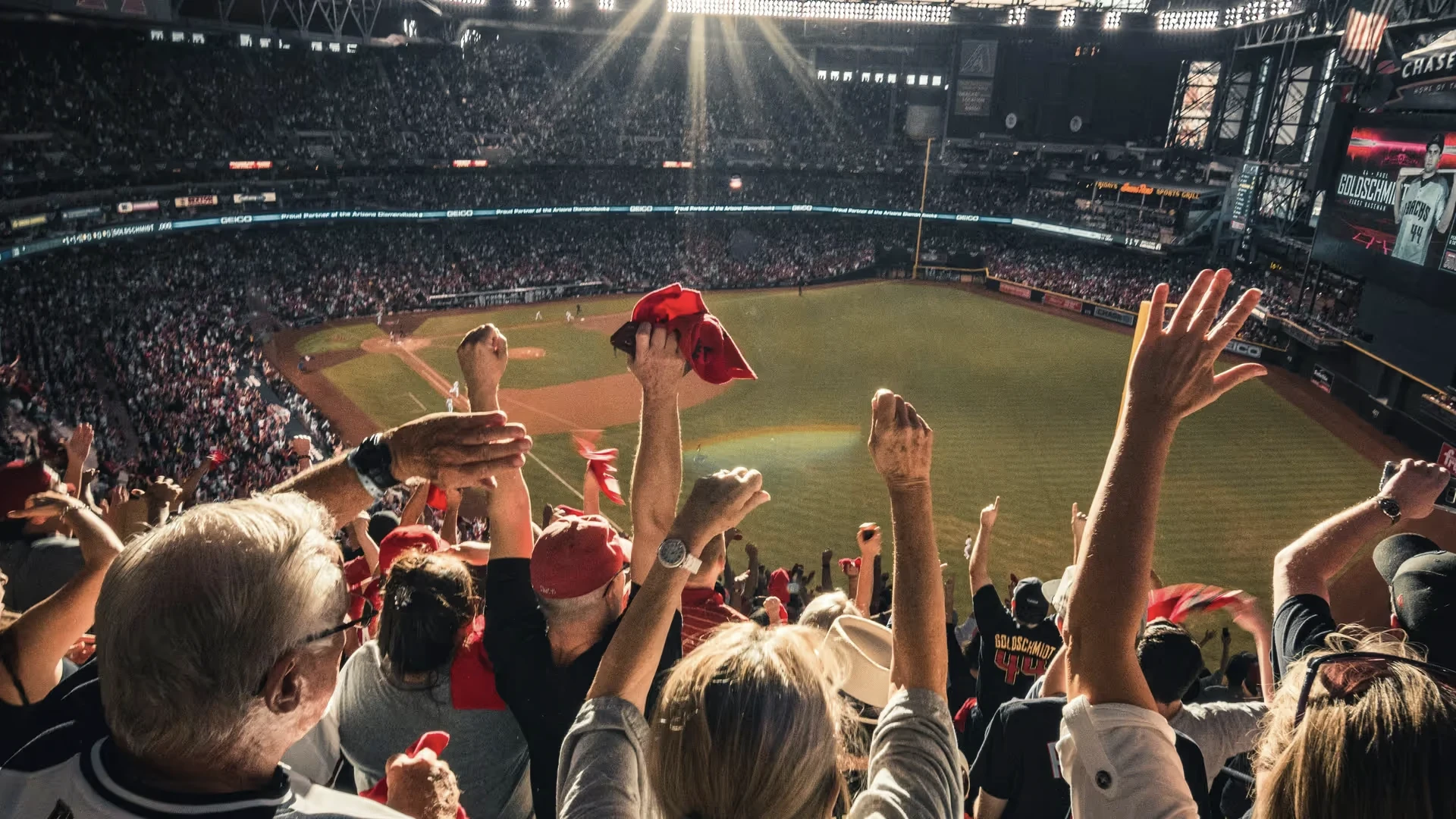
Why Sports Clubs Must Start Thinking Like Retailers
Fragmented systems. Inconsistent fan data. Siloed commerce channels. Pressure to unlock new revenue. Sound familiar?
Despite having one of the most loyal customer bases in the world, many sports clubs still struggle to monetise that loyalty through digital channels. Meanwhile, retailers are leagues ahead - delivering unified, data-rich experiences that convert casual browsers into high-value, repeat customers.
The uncomfortable truth? Many clubs operate with a commerce strategy that retail left behind 10 years ago.
If you're a CTO, director, or e-commerce manager at a sports club, it's time to catch up.
The Digital Maturity Gap: Where Retail Wins, Clubs Lag
Retailers have embraced unified commerce — creating seamless, data-driven journeys across every channel. Whether in-store, online or on mobile, every interaction is connected and customer-centric.
Sports clubs? Not so much.
Most still operate with disconnected systems:
- Ticketing in one platform
- Merchandising in another
- CRM (if it exists) on its own island
This fragmented experience leads to clear commercial gaps. Consider a typical fan journey:
- They buy a match ticket, but that data isn’t used to promote merch or hospitality
- They shop online, but can't pick up at the stadium
- They get email offers that don’t match their interests or history
Retail research shows omnichannel customers are 30% more valuable, and businesses with strong omnichannel engagement retain 89% of customers – compared to just 33% for those who don’t. In sports, that translates to fans spending less, engaging less, and becoming harder to reach – despite their passion.
The High Cost of Standing Still
Matchday revenue is no longer enough. Even where online stores exist, many are outdated, unoptimised for mobile, lack personalisation, and miss out on key global audiences.
According to Deloitte’s Football Money League, most clubs still generate under 20% of commercial revenue via digital channels – even though more than 80% of fan engagement is now online.
Loyalty programmes are another missed opportunity. Many clubs offer basic season ticket perks, but few have the kind of data-driven, gamified, reward-rich experiences that turn casual fans into high-value customers.
The Playbook: What Retailers Know That Clubs Must Learn
1. Unified Commerce Is the Foundation
This means more than just “multi-channel.” It’s about full integration between front-end and back-end systems — so inventory, CRM, ticketing, and e-commerce platforms talk to each other in real time.
For fans, this unlocks a frictionless experience:
- Buy online, collect in stadium
- Earn loyalty points across tickets, merch and food
- Receive personalised offers across every channel
Integrated marketing campaigns using 3+ channels (email, social, SMS) drive 287% higher purchase rates, according to Omnisend.
The principle holds in sport too: the more engaged the fan across multiple channels, the higher their lifetime value.
Clubs that invest in a unified approach create a frictionless experience that respects fan loyalty and grows revenue.
2. Focus on Loyalty and CRM
Fan loyalty is unlike anything in retail. But clubs rarely harness that passion through smart, personalised loyalty strategies.
Modern programmes incentivise content engagement, event attendance, referrals and even social media interaction. They generate first-party data in a world where privacy changes make that more valuable than ever.
That data can power:
- Smart segmentation
- Product recommendations
- Fan-specific offers
- Sponsor value propositions
A CRM system that connects data from ticketing, merchandise, digital content, and customer service allows for a true 360° fan view.
Leading examples include Manchester United Membership, Liverpool FC Official Membership, and FC Barcelona’s “More Than a Club” philosophy, each fostering deep fan engagement through exclusive content and benefits
3. E-Commerce and Digital Marketing: Go Global or Go Home
Clubs aren’t just local institutions anymore, they’re global brands. Digital commerce opens up year-round, international revenue streams. But many clubs treat e-commerce as an afterthought.
A modern, mobile-optimised online store can outperform a physical shop many times over. Add in integrated marketing – via email, social, and paid media – and you’ve got a scalable engine for growth.
Understand Your Audience
Younger fans consume sport differently. Gen Z often skips live games in favour of social content, highlights, or gaming. If your club isn’t visible in those spaces – and isn’t selling in them – you’re invisible to the next generation of supporters.
Retail has proven that direct-to-consumer (D2C) works. Sports clubs must adopt the same model – and control the full fan experience, from content to commerce.
4. Do not Forget Great Customer Service
Sports fans now expect Amazon-level service: fast shipping, hassle-free returns, real-time updates, and frictionless checkouts.
One bad experience, like a broken checkout on kit launch day, can lead to lost loyalty and long-term damage. Research shows 52% of customers leave after one negative experience.
CTOs and ops teams need to prioritise:
- Real-time inventory visibility
- In-stadium technology (e.g. mobile POS, in-seat ordering)
- Trained staff and streamlined logistics
- Cross-channel customer support (chat, social, email)
Operationally, this means clubs must improve back-end processes: real-time inventory, connected systems, better trained staff, and consistent service levels.
The result? Higher spend per fan, stronger retention, and better reputation.
How The Commerce Team Global Helps Clubs Transform
The sports industry is at a crossroads. Clubs that adopt retail best practices such as unified commerce, personalised loyalty, CRM integration, and strong digital marketing will grow stronger, more global, and more resilient.
Those that delay will struggle to connect with a digitally native fanbase and see their revenue potential eroded by more agile competitors.
The good news? You don’t need to do it alone.
With a clear roadmap, the right technology, and partners sports clubs can modernise with confidence preserving their heritage while embracing the future.
At The Commerce Team Global, we specialise in helping organisations catch up to retail maturity and thrive.
We combine strategic consulting and hands-on implementation, offering:
Strategic Consulting:
- Commerce audits – uncover gaps in platforms, data, and UX
- Digital roadmap – align tech, people and revenue goals
- Loyalty and CRM strategy – fan-first, data-rich
Hands-On Implementation:
- Unified commerce platforms – ticketing, e-com, CRM all connected
- Supplier integrations – streamlining fulfilment and stock
- Omnichannel marketing – content + commerce + conversion
Operational Optimisation:
- Inventory and order flow redesign
- Matchday logistics
- Post-purchase journeys
We understand sport and we understand commerce. Whether you're a Premier League club, a Championship side, or a regional supplier, we help you unlock more value from every fan interaction.
Get in touch at info@thecommerceteam.com



.webp)